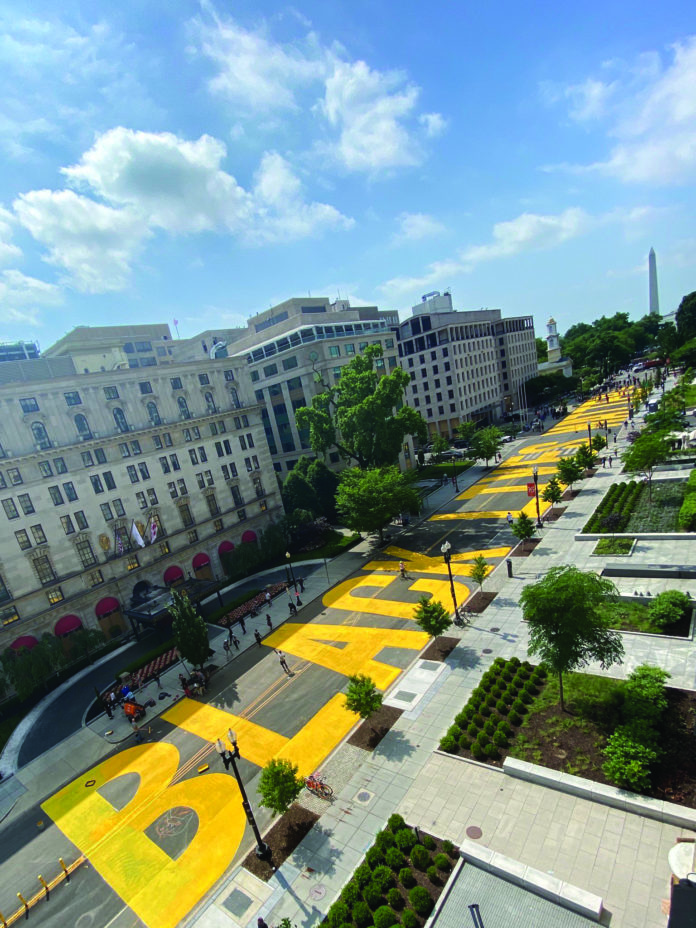That the acronym “BLM” evokes something less than enthusiasm for many of us isn’t surprising.
After all, some Black Lives Matter boosters have used “intersectionality”—the notion that real or imagined oppressed peoples of every stripe are natural allies —to glom the American black experience onto the Palestinian, dutifully demonizing Israel. And then there is the raw, ugly anti-Semitism some of the movement’s supporters have spewed.
Jew-hatred, it can’t be denied, exists in parts of the black community. A video of a July 4 speech by the rabid Jew-defamer Louis Farrakhan was viewed more than one million times. And not long ago, a smattering of black sports and entertainment figures spewed a spray of old canards about Jews into the public sphere.
And yet, for those given to optimism, there was fodder for hope in the strong pushback by a number of respected black personalities against those emissions.
Celebrated essayist Roxane Gay publicly castigated one rapper who shared anti-Semitic images with his fans, writing, “It is impossible to take you seriously with regard to social justice or… anything when you post anti-Semitic imagery.”
News host Marc Lamont Hill scolded the same fellow, saying, “Conspiracy theories of Jewish global domination are textbook anti-Semitism.”
Muslim NBA Hall of Famer Kareem Abdul Jabbar bemoaned the “shocking lack of massive indignation” over another entertainer’s anti-Jewish canards.
“[I]f it’s OK to discriminate against one group of people by hauling out cultural stereotypes…it must be OK to do the same to others,” he wrote.
Journalist Jemele Hill noted in The Atlantic, “The unfortunate truth is that some Black Americans have shown a certain cultural blind spot about Jews. Stereotypical and hurtful tropes about Jews are widely accepted in the African American community.”
She, though, has “learned that just because I’m aware of the destruction caused by racism, that doesn’t mean I’m automatically sensitive to other forms of racism, or in this case, anti-Semitism. Black people, too, are capable of being culturally arrogant.”
Football player Zach Banner asserted, “We need to understand that Jewish people deal with the same amount of hate and similar hardships and hard times… When we talk about Black Lives Matter…we can’t do that while stepping on the backs of other people to elevate ourselves…”
As for the BLM movement itself, a fact often overlooked is that it is a hodgepodge of groups, some local, some national, some focused exclusively on police violence against black citizens, others exploiting the racial issue to promote other agendas, including an anti-Israel one.
The most infamous of the latter is a group called Movement for Black Lives, which issued a platform four years ago embracing BDS and accusing Israel of “genocide.”
Intriguingly, last week, the Jewish Telegraphic Agency obtained a ten-page summary of that group’s 2020 platform, and it contains no mention of Israel, Zionism, Palestinians or boycotts.
Whether or not that signals the group’s recognition of the idiocy of its previous libels can’t be known; the full platform has yet to be issued.
Either way, though, there is a distinction between Black Lives Matter as a loose alliance of discrete groups and what the phrase more broadly and more essentially represents: a cry of protest over police violence against blacks.
No, there is no evidence of systematic racism in American policing. And yes, the vast majority of police are upstanding people. What’s more, officers sometimes have to make snap judgments; it is unrealistic to expect them not to know, if only subconsciously, that black citizens are grossly overrepresented in the commission of violent crimes.
At the same time, though, all of that is small solace to the average law-abiding, unarmed black man stopped for a traffic violation and fearful for his life.
Which leaves those who feel genuine empathy for such innocents faced with the challenge of disassociating some BLM affiliates from what is essentially a civil rights movement.
It’s not unreasonable to sympathize with members of a minority who feel, and not without evidence, that they are being dangerously profiled.
But neither is it unreasonable to expect groups claiming a piece of the BLM mantle to make clear that that alone is their agenda. l



















